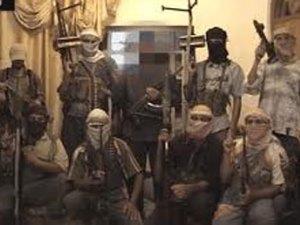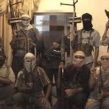
February Briefs
Publication: Militant Leadership Monitor Volume: 4 Issue: 2
By:

IRAQI AL-QAEDA AFFILIATE ISLAMIC STATE OF IRAQ INCREASES ATTACKS ACROSS IRAQ
Nicholas A. Heras
The Iraqi al-Qaeda affiliate Islamic State of Iraq (ISI) has maintained a steady rate of attacks over the last few months. On January 3, ISI executed attacks against Shi’a Muslim pilgrims in and around Baghdad. The worshippers were commemorating arba’een rituals in honor of the death of the Imam Hussein at Karbala. A suicide car bomber attacked a procession of Shi’a Muslim worshippers at a bus station in the town of Musayyib in the central Babil Province south of Iraq, killing 27 people and wounding 60 (Reuters Arabic, January 3). On the same day, a separate roadside bomb attack in Baghdad against a minibus carrying Shi’a worshippers killed 4 people and wounded 15 (al-Ahraam, January 3).
Shi’a worshippers were also targeted by ISI in February. On February 8, a series of suicide attacks against Shi’a areas of Baghdad, the city of Hilla south of Baghdad as well as in and around the southern Iraqi city of Karbala killed 34 people and wounded over 100 (Shi’a Post, February 9). Later in the month a series of coordinated suicide bombings killed over 35 people in the several Shi’a-majority districts of Baghdad (Shiite News, February 19).
A suicide attack targeting Ifan Saadoun al-Issawi, an important Sunni MP from Anbar Province and a prominent member of the anti-ISI Sunni-majority Sahwa (Awakening) Movement, killed al-Issawi and six of his companions (al-Iraqi, January 15). A statement made by ISI a few days after the assassination of Ifan al-Issawi congratulated his killer and accused al-Issawi of being an American “dog,” an unbeliever, and a tool of Safavid (Iranian) aggression against Sunnis (Ansar al-Mujahideen Network, January 18).
The restive and diverse Kirkuk region has seen several attacks, although it is yet to be determined if the attacks were carried out by the ISI or local Salafist groups from the area. On January 16, in Kirkuk, a suicide car bomb attack directed against the Kurdistan Democratic Party’s (KDP) headquarters in a crowded area of Kirkuk killed more than 20 people and wounded 180 (Kurdiu.net, January 16). On the same day, another suicide attack directed against an office of the Patriotic Union of Kurdistan (PUK) in the nearby town of Tuz Khurmato killed 3 people and wounded 15 (Kuwait News Agency, January 16). The following week in Tuz Khurmato a suicide bomber struck a funeral at a Shi’a mosque, killing 42 people and wounding 75 (Turkmenli TV, January 24).
The ISI is seeking to utilize widespread Sunni Muslim political dissatisfaction against the Shi’a and Kurdish dominated central Iraqi government led by Nouri al-Maliki to foment sectarian strife in the country. A statement released by the ISI’s spokesman Abu Muhammad al-Adnani exhorted Iraqi Sunnis to take up weapons against “apostates,” or Iraq’s Shi’a community, the al-Maliki led government and Sunnis opposed to the ISI (al-Jahad, January 30). The ISI further accuses the Iraqi government of committing “atrocities” including property seizure, raids and arrests, torture and displacement of Sunnis (Reuters Arabic, February 18).
LEBANESE MILITARY RAID KILLS ALLEGED JABHAT NUSRAH COMMANDER
Nicholas A. Heras
On February 2, a raid conducted by Lebanese military intelligence to apprehend Khalid Hmayyed in the northeastern Lebanese village of Arsal, near the Lebanese-Syrian border, led to a firefight between armed residents of the village and the Lebanese military. Lebanese Special Forces intervened in the firefight, which led to the deaths of Hmayyed and two Lebanese military officers. Several Lebanese soldiers and residents of the village were also wounded in the fighting (Daily Star, February 2).
Hmayyed was wanted by the Lebanese military for his alleged connection to the armed Syrian Salafist opposition group Jabhat al-Nusrahh, which is listed as a terrorist organization by the United States Department of State, and Hussein Houjeiri, an Iraqi al-Qaeda operative (al-Akhbar, February 2). Houjeiri and Hmayyed are also reported to have been planners of the kidnapping of seven Estonian bicyclists in Lebanon’s Bekaa’ Valley in June 2011 (Daily Star, February 9). Lebanese military sources assert that Hmayyed was recruiting and training a 300 person force of Islamist fighters for combat in Lebanon and Syria. He is also believed to have had ties to anti-Assad Salafist fighting groups in the northern Lebanese city of Tripoli and to have been a liaison between Jabhat al-Nusrahh and Lebanese Salafist fighters in and around Tripoli. [1]
The area in and around Arsal, with a majority Sunni population that is generally anti-Assad, is considered by the pro-Assad March 8 Lebanese political bloc and Lebanese security services to be a major site of Lebanese support for the armed Syrian opposition (Daily Star, February 5). Residents of the village, and anti-Assad Lebanese politicians such as the Future Movement’s Khalid Daher, stated that the operation in Arsal was a Hezbollah conspiracy to weaken the Syrian opposition and its Lebanese supporters and that the Lebanese military intelligence conducting the operation in Arsal were wearing civilian clothing. They also asserted that the firefight that ensued following the arrest of Hmayyed was due to the belief that the Lebanese soldiers were pro-Assad militiamen (NOW Lebanon, February 3). The Lebanese military denies that its intelligence officers and soldiers were in civilian clothing; photographs taken of the soldiers while the conflict was occurring in Arsal obtained by the Lebanese press show soldiers in uniform, not in civilian clothing (Lebanese Broadcasting Corporation, February 3).
As a result of the fighting in Arsal, the Lebanese military has erected checkpoints limiting movement into and out of the village and has charged 34 Arsai residents with murder of the two Lebanese soldiers, the attempted murder of Lebanese soldiers and seizure of military property (an-Nahar, February 11). The raid in Arsal, and the resulting furor in its aftermath, are adding further tension and distrust between pro and anti-Assad Lebanese political and social actors.
Note
1. Author’s interview online with a Lebanese Army source with extensive operational experience throughout Lebanon who requested anonymity due to being on active duty, February 3 and 18, 2013.




